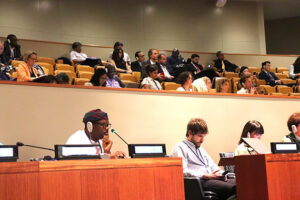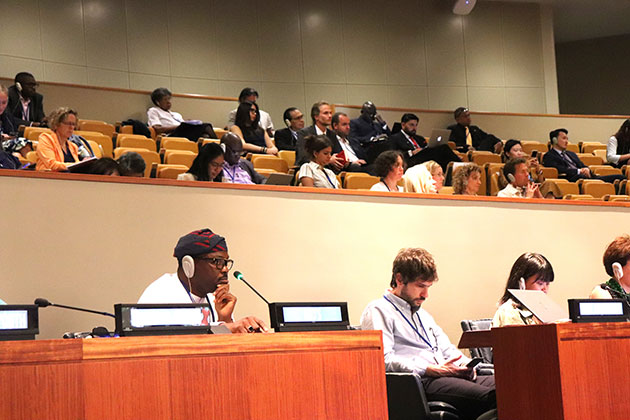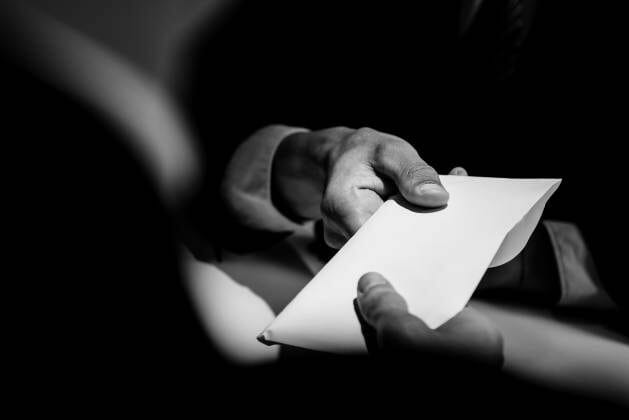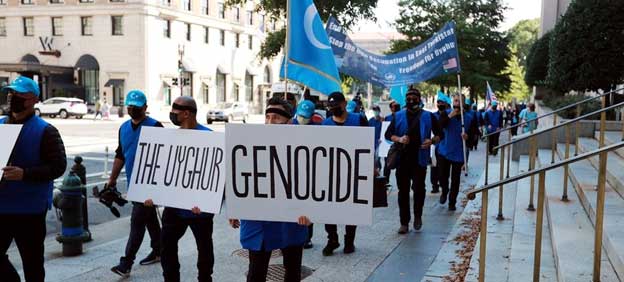
Armed Conflicts, Civil Society, Environment, Financial Crisis, Global, Global Geopolitics, Headlines, Human Rights, Inequality, Peace, TerraViva United Nations
Sarah Strack is Forus Director and Christelle Kalhoulé is Forus Chair and civil society leader in Burkina Faso

Credit: Forus – UN High-Level Political Forum 2025
– This September the UN turns 80, but the lessons of peace, justice, and cooperation are still unfinished. The world today faces the flames of inequality, conflict, ecological collapse and growing digital threats. In short, the very problems the UN was created to solve are once again staring us in the face.
That’s why the UN’s latest reform push, “UN80,” matters. Launched this spring, it promises to make the multilateral system more inclusive and accountable. But here’s the real question: can it align with 21st century’s needs? Will it be remembered as a budget drill or the start of a renewal that truly delivers for people where they live?
If this moment is going to count, three things must happen.
First, reforms must put people at the center, and we must avoid a reform by spreadsheet.
The UN is under financial strain. Geopolitical tensions are sky-high, negotiations are gridlocked, Member States are late on dues and membership fees, arrears run into the billions, and the UN’s mandate, efficiency, and effectiveness are under question.
“In a polycrisis world, shrinking the UN’s capacity is like cutting the fire brigade during wildfire season,” warns Christelle Kalhoulé, Forus Chair and civil society leader in Burkina Faso. “Reform cannot be about cutting corners. It must be about giving people the protection, rights, and solidarity they are being denied today.”
The UN80 Initiative marks the most sweeping reform effort in decades, with three tracks: streamlining services and consolidating IT and HR systems, reviewing outdated mandates, and exploring the consolidation of UN agencies into seven thematic “clusters.”
On paper, these reforms could bring overdue coherence. But the process has too often felt opaque, with key documents surfacing via leaks and staff unions flagging limited transparency and consultation.
Increasing the use of tools like AI is among the “solutions” being floated to “flag potential duplication” and shorten resolutions — yet without clear guardrails, there’s a risk of automating cuts and reinforcing bias rather than empowering people-first innovation. And the debate has too often been framed around cash flow, back payments, and cuts. The United States alone owes $1.5 billion in dues. Major donors are cutting ODA, and several UN humanitarian agencies are planning double-digit reductions in 2025 in their budgets.
As Arjun Bhattarai, Executive Director of the NGO Federation of Nepal warns: “Reform cannot be a synonym for austerity. Cutting budgets may make spreadsheets look tidy in New York, but it leaves communities in Kathmandu, Kampala, Khartoum, or Kyiv without support when they need it most.”
The danger is a reform focused on management efficiencies instead of reimagining what the UN must be to meet today’s and tomorrow’s challenges.
Second, a better compass exists.
Despite its flaws, multilateralism remains indispensable. Without the UN, the world would be poorer when it comes to peace, cooperation, and collective problem-solving.
What makes the UN matter most, however, are not the halls of New York or Geneva, but the people and communities it exists to serve.
The UN was created “for the people and by the people”. Protecting, safeguarding and promoting healthy sustainable lives for communities must remain the core priority.
Our measure for reform is simple: a transformed UN must reduce inequalities, ensure fairer and more inclusive representation across its governance structures, deliver public goods fairly with accountability, and protect people better, faster, while safeguarding rights.
As Moses Isooba, Executive Director of the Uganda National NGO Forum, puts it: “A reformed UN must stand closer to the people than to the corridors of power. It must be measured not by the length of resolutions, but by the depth of hope it restores and the changes it makes for communities worldwide.”
If UN80 becomes a technocratic exercise in “doing less with less,” we will emerge with a smaller, weaker UN at precisely the moment we need it most.
If instead it becomes a justice-driven reimagining — linking architecture and finance to a clear vision of protection, equity, participation, and decentralization — it could renew the UN’s capacity to act as a backbone of international cooperation.
As Justina Kaluinaite, Policy and advocacy expert at the Lithuanian NGDO Platform, stresses: “The UN will survive another 80 years only if it learns to listen. True reform is not about doing more with less, but about doing better with those who have been left out.”
Third, put reforms through three simple tests.
When leaders meet in New York, we challenge them to have every reform proposal answering three questions:
- 1. The Inequality Question: Does this reform measurably narrow gaps — by income, gender, geography, or status — in who is protected and who benefits?
2. The Localisation Question: Does it move money, decisions, and accountability closer to communities, with transparent targets and timelines?
3. The Rights Question: Does it strengthen — not dilute — protection, gender equality, and human rights?
As Christelle Kalhoulé, sums it up: “The measure of UN80 should not be how much paper it saves, but how many lives it protects. History and the legacy we leave to future generations will not ask whether the UN balanced its budget in 2025; it will ask whether it stood with people.”
If leaders embrace this moment, the UN can emerge sharper, stronger, and more inclusive, with a justice-driven renewal of multilateralism, reclaiming its place as the backbone of global cooperation. If not, UN80 may go down in history as the moment when multilateralism chose retreat over renewal.
If UN80 is going to matter, it must prevent crises before they explode, deliver for both people and planet, give underrepresented countries and communities a real voice, keep civil society free and strong, and fix financing so money reaches those on the frontlines. The real test isn’t how tidy the org chart looks, it’s whether lives are saved, trust is rebuilt, and the UN proves it can still rise to the moment and be fit to serve this 21st century world.
IPS UN Bureau










